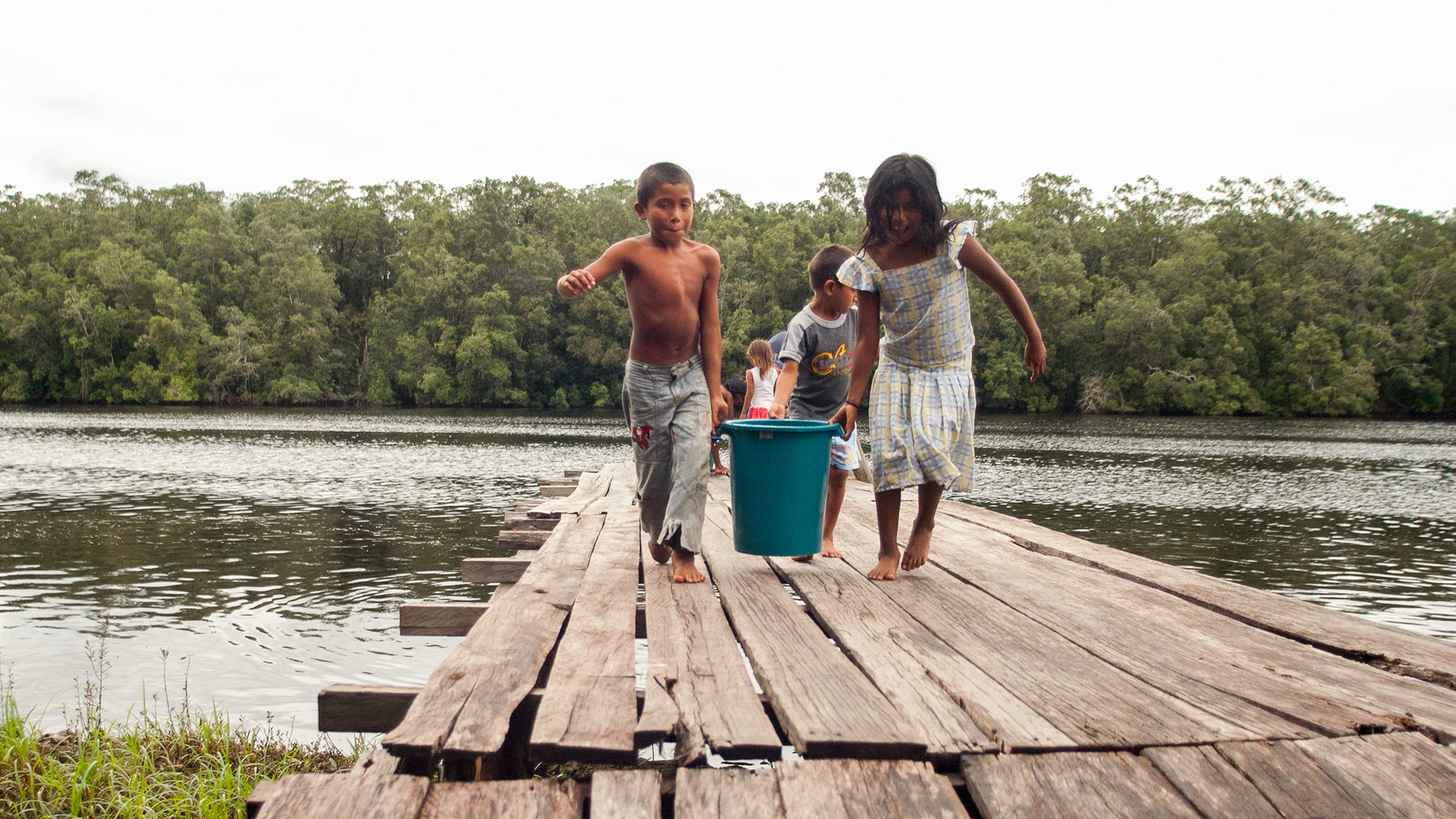
Even when the wheels went up inside the belly of the plane, I still couldn’t relax. I felt myself start breathing again when I knew we were over Puerto Rico. After three years of living in Venezuela, I left the country with my wife and three-month-old son. The frequent road stops by the national guard, robberies, and bribes we were forced to pay to be able to pass through neighborhoods had taken an emotional toll on my family and begun to wear us down.
It wasn’t always like this.
Better Days
My history with Venezuela began in the late 1990s. I was working in the town of Boa Vista in northern Brazil, not far from the Venezuelan border. I made frequent “border runs” to far-wealthier Venezuela to pick up supplies. I’d buy name brand jeans and pancake mix—things that were unavailable in the disconnected area of Brazil where I was teaching at a school.
During school breaks, I traveled to the Venezuelan capital of Caracas, a metropolitan city with concerts, art galleries, and cafes lining a vibrant area of the city called El Hatillo. I’d return to Brazil with my suitcase full of groceries and a new pair of shoes.
But it wasn’t long until the downward spiral began. The abundance I experienced was giving way to scarcity. When we left almost eleven years ago, there were already shortages of coffee, milk, and sugar—items produced within the country. Lining up early at the local supermarket and waiting an hour to buy basic staples didn’t seem extreme. It was inconvenient, but it became normal.
“Venezuelans became the top asylum seekers in the United States. But for most, fleeing is not an option because there’s nowhere they can afford to go.”
The situation that was bad then has become dire now. Hyperinflation has made even the most basic items unattainable for middle-class families. Poor families are limited to a few meals a week, and malnutrition is an epidemic. Many parents starve, choosing to give all the food to their children.
Those who are able, escape. Last year, for the first time in history, Venezuelans became the top asylum seekers in the United States. But for most, fleeing is not an option because there’s nowhere they can afford to go.
Do Whatever It Takes to Survive
With their country teetering on the brink of collapse, Venezuelans are trying to fight scarcity through relationships. In spite of huge shortages in basic commodities, resourceful Venezuelans have created networks through social media to let friends know when and where flour or sugar can be found at nearby markets.
Businesses have created information chains through text messaging to provide customers with lists of available medicines. Churches and aid groups maintain food kitchens in an attempt to help relieve some of the stress on the most vulnerable families.
Every month, we ship boxes from Asia (where we currently live) full of medicine, diapers, and canned foods to friends in Venezuela. We hope the small amount of aid will help in some way. Our friend Andrea has left messages on our phone in tears, expressing gratitude for aspirin and allergy medicines.
Another friend Javier had been saving for two years to be able to get the supplies necessary for a doctor to perform back surgery on his wife. Shortages of basic medical supplies have become so severe that patients must bring everything needed to the hospital with them. Medicine, anesthesia, antibiotics, sterilized needles, and dressings—hospital shelves have been stripped of the most basic necessities.
The Bleak Outlook and Sliver of Hope
This year is predicted to be even more challenging for the people of Venezuela. Thinking back to our last week in the country years ago, I remember eating a goodbye lunch with friends and complaining about the long line to order at the counter. I didn’t realize then how grateful I should have been for easy access to a simple meal. Today Venezuelan friends remind me that for them, those were the last of the good times.
“When people ask how they can help, I tell everyone the same thing: above and beyond all the physical needs are spiritual needs.”
I believe with every fiber of my being that our time in Venezuela had little to do with my actual vocation as a teacher and everything to do with the people whom God brought into our lives. We learned to pay attention to relationships, never seeing people as a distraction from “real” work. God used our experiences with Venezuelans to teach us to love. And we are still in constant communication with our friends there today.
Much of what happens in Venezuela is not reported in the news. Even friends in other Latin American countries have been surprised by my posts on social media of events in Venezuela. When people ask how they can help, I tell everyone the same thing: above and beyond all the physical needs are spiritual needs.
Please remember the people of Venezuela when you pray. The greatest needs are simple. Pray for
- access to clean water and food.
- provision of medical supplies, cancer treatment drugs, and basic immunizations for children.
- safety for children and for those threatened by child trafficking.
- wisdom for leaders around the world in considering how to respond to the humanitarian crisis.
- strength and encouragement for Venezuelan churches serving their communities.
- comfort and confidence that God is in control in spite of the way things may appear.
As you pray for God to meet their spiritual needs, consider what you can do as an individual, family, or church group to meet Venezuelans’ physical needs through Baptist Global Response.
Robert Caine is a former IMB missionary who served in Venezuela and Thailand. He currently works as a learning specialist in Asia and has started an NGO for special education advocacy.

